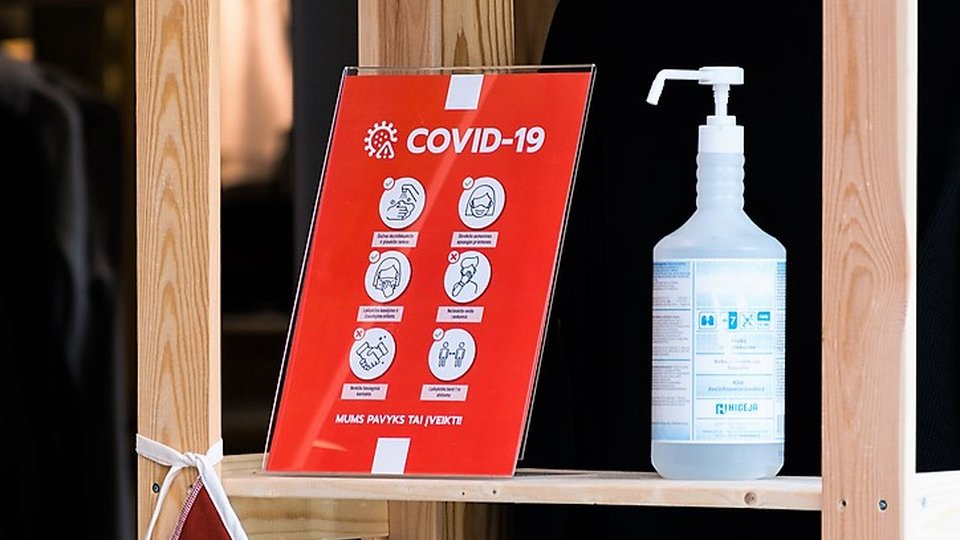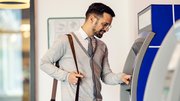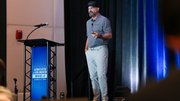Commentary
Pandemic reopenings may be premature; why self-service needs to step forward
Higher coronavirus hospitalizations in some states could get out of control unless robust tracing measures are deployed, and a slowdown in long awaited reopenings may be needed. The self-service industry has already taken a leadership role in this effort and must not let up.

June 15, 2020 by Elliot Maras — Editor, Kiosk Marketplace & Vending Times
I'm as tired of the COVID-19 lockdown as anyone. I'm anxious to get out and about and be with people.
But this past week brought the sobering news that the long-awaited reopening of the U.S. economy will likely not be moving as quickly as many have hoped, the warmer weather notwithstanding.
Dr. Anthony Fauci, director of the National Institute of Allergy and Infectious Diseases, on Friday said higher coronavirus hospitalizations in some states could get out of control unless robust tracing measures are deployed, and that a slowdown in long reopenings could be needed. "Normality" might not return until "within a year or so," Fauci told Reuters.
As of Saturday, COVID-19 cases were still increasing in 18 states — several of which saw record or near-record highs. In 17 states, the numbers were dipping, while numbers remained steady in 13 states, according to Johns Hopkins University Center for Systems Science and Engineering. Alabama, Nevada, Oklahoma, Oregon, South Carolina and Wyoming, reported case increases of more than 50% in the past week over the prior week.
The Centers for Disease Control and Prevention, meanwhile, confirmed communities are experiencing different levels of transmission as they ease up on mitigation efforts. Officials emphasized it is still necessary to embrace social distancing, hand hygiene and wearing a face covering in public.
Lockdowns could return
If infections continue to rise, more intensive mitigation efforts such as those implemented in March may be needed again, said Dr. Jay Butler, CDC's incident manager. He said the decision needs to be based on what is happening within individual communities regarding disease transmission, acknowledging that at present, rates nationally have decreased.
Dr. Angela Dunn, a Utah state epidemiologist, told the Las Vegas Review Journal there is a clear connection between her state's spike in COVID-19 infections and its loosening of restrictions. She also cited people not wearing face masks and following social distancing recommendations.
Rising case numbers are especially alarming in Las Vegas, which reopened casinos the week before last. The seven day new case average for Nevada hit 201 Friday, its highest ever, although one state medical official said it could be due to increased testing.
Clearly, the U.S. is not "out of the woods" with COVID-19. Which points to a continuous, critical role for the self-service industry.
Self-service plays a critical role
The self-service industry has already taken a leadership role in this effort and must not let up.
Last month, this site ran a two-part series on new COVID-19 prevention technology. Part one explored self-service machines designed to dispense safety products and/or allow people to self sanitize, while part two focused on equipment with temperature sensors and biometric identity verification.
Artificial intelligence enabled, autonomous robots that monitor human temperature, social distancing and mask wearing have also emerged, along with those that disinfect large facilities.
Over the last few weeks, even more self-service technologies have debuted. Research and development activity has never been greater.
Hospitality, gaming and foodservice establishments are on the front lines of much of the "new normality."
Casinos are now required to screen guest temperatures in addition to other requirements.
The CDC, in its new set of recommendations, encourages foodservice venues to use single-serve options as much as possible and to remind guests to wash their hands before and after eating.
Remember childhood obesity?
Keep in mind that this is not the first time that the self-service industry has taken the lead in addressing a healthcare crisis.
Many readers will remember the childhood obesity crisis more than a decade ago, when the vending and foodservice industries were under the gun for rising child obesity rates. In 2005, the American Heart Association and the Robert Wood Johnson Foundation announced "A Nation at Risk: Obesity in the United States," a statistical sourcebook of facts about obesity.
In response to this alarming report, lawmakers called for removing vending machines and soda from schools. The industry felt it was unfairly being attacked, but it wisely responded in a proactive manner.
The National Automatic Merchandising Association launched its Balanced For Life/FitPick initiative, offering marketing tools for vending and foodservice operators, including resources to help them evaluate and create nutrition-based menus, downloadable template wellness materials, machine graphics and point-of-sale materials.
The vending/foodservice industry maintained a leadership role in response to this epidemic for the next several years, creating solutions to address the multi-faceted problem. Beverage companies developed and marketed hundreds of non-carbonated options that have created healthier consumption habits.
As for COVID-19, the country will return to some form of normality within the next year, as Dr. Fauci said. By that time, the public will learn to embrace safety protocols and government and industry will deploy an even wider range of self-service solutions.
For an update on how the coronavirus pandemic is affecting convenience services, click here.
About Elliot Maras
Elliot Maras is the editor of Kiosk Marketplace and Vending Times. He brings three decades covering unattended retail and commercial foodservice.
 ChatGPT
ChatGPT Grok
Grok Perplexity
Perplexity Claude
Claude










